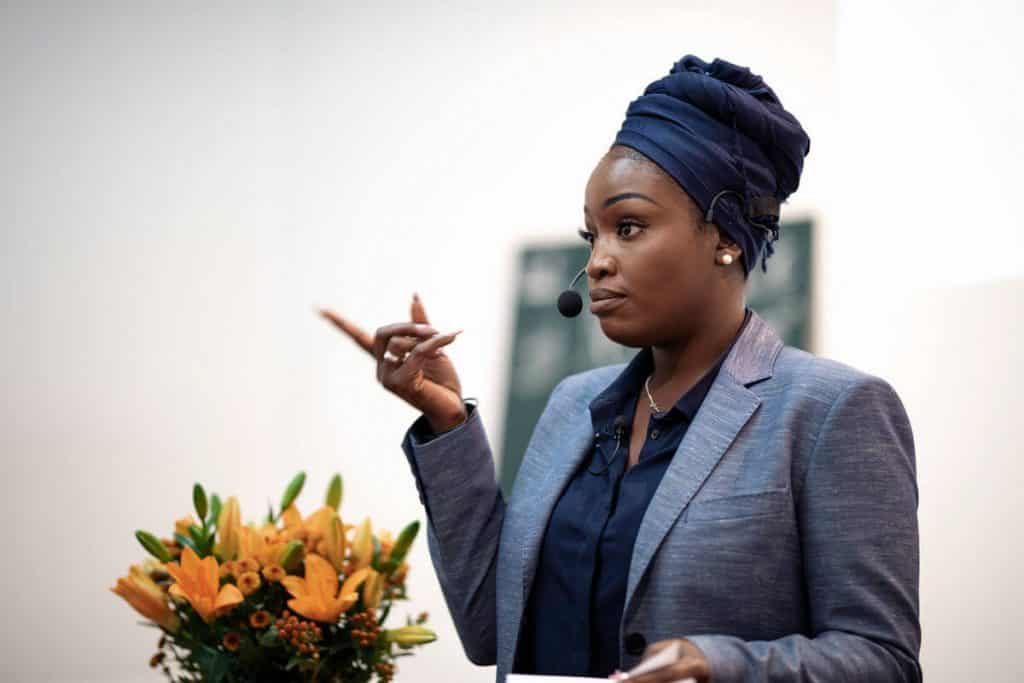A US-based Gambian criminologist specialising on law enforcement and national security crisis, has urged the country’s religious leaders to avoid interfering with matters of police or litigation.
Modou Lamin Faye, a respected Settle based advocate for justice and judicial transformation in the Gambia was refreshing the Supreme Islamic Council’s recent intervention in securing the release of Momodou Sabally. Faye who described the UDP’s Campaign Manager’s arrest as “unconstitutional and unjustifiable”, said the Supreme Islamic should have allowed the police to do their job.
“For our rule of law and judicial system to be respected and valued, we should not allow religious leaders/community elders to be mediating for someone’s release or cases that are supposed to be handled in court. This Undermines our judicial system and history will continue to repeat itself if we don’t put a stop to it,” Faye told The Vice.
He said the country’s number “one priority should be promoting public safety with respect for life, dignity, and by upholding constitutional and human rights of everyone in the Gambia regardless of ethnicity, race, and economic status”.
Faye added that law enforcement officials especially department leaders should be held accountable when they violate these ideals.
“To be successful in this route, we need to bring up our Judicial, law enforcement, and intelligence gathering strategies to meet the international standard,” he added.
Commenting on policing and intelligence, Faye said enforcing laws and gathering intelligence on both national and international level are among the most important things in a country.
“With effective policing and intelligence gathering, the public plays a huge role in preventing crime by providing information especially when law enforcement officials and people (the communities) work together to fight crime. About 90 percent or more of the information received by the investigators to begin their investigation comes from the public, therefore, the Gambia government should start by establishing communication/operation centers, whereby the public can call in to report crimes or possible threat to national security.
“Any information received would then be analysed and assessed (every information should be treated as important) to determine if further investigation is necessary,” he stated.
He said police presence should heavily be in areas that has high crime rate by dispatching both uniformed and under-cover officers in those areas.
“We should minimize having our law enforcement officers stand at checkpoints (this only works when searching for an identified suspect) to deter people from committing crimes. Instead, we should invest in police patrol squad vehicles (not pick-up trucks) to conduct security patrols and randomly do traffic stops for traffic violations without violating people’s constitutional rights,” he noted.
He said the country should change the uniforms of its patrol division unit to something more tactical looking, with proper training and equipment to show that “we mean business and play time is over”.
“We should have Special Weapons and Tactics (S.W.A.T) team at every region including the SIS to be executing search/arrest orders, crime intervention, and in hostage situations. We should also educate the public about what police work is, how the community and the police can work together to keep each other safe,” he added.
Prosecution
He argued that high profile cases are being dropped from prosecution because “we heavily rely on witness testimonies to get a conviction instead of heavily relying on credible evidence like recorded confessions, physical, digital, and forensic evidence”.
“To make sure that Gambia’s prosecutors effectively do their job, investigators should make sure that the following should be applied. First officer or officers at the scene should make sure that the crime scene is preserved and protected to prevent the crime scene from being contaminated before the evidence gathering team arrives,” he said.
He added that officers should also document everyone including the investigators that are on site.
“Evidence chain of custody is also important to maintain. Conducting interviews with the neighbours and canvassing the area for other possible clues to put the puzzles together. It is time for investors to understand that we appreciate the fact that they are investing in our country, which creates employment but the days where money will be used to undermine our justice and judicial system are far gone,” he said.
He said there are many strategies that the country can rely on to lower the crime rate and effectively enforce laws but “if we start with these basic steps, put our differences aside and work together for the betterment of our Gambia, then we will prevail”.





